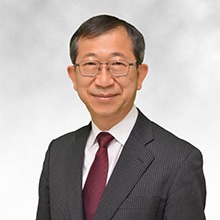Sessions With Tatsuya Terazawa
Monday, 18 March
-
07:30pm - 09:00pm (CST) / 19/mar/2024 12:30 am - 19/mar/2024 02:00 am
Bridging the North-South Divide
GeopoliticsDebt, high interest rates, commodity shocks and energy insecurity have propelled anger in the Global South. Emerging economies are seeking to overhaul the structures of the global political and economic system, hedge their strategic bets away from alliances and blocs and accelerate the emergence of a multipolar system more favorable to their interests. Is the future of BRICS+ and the G77 one of new opportunity or unreconciled competition? How deep is this polarization? What are the tools to bridge the divide? What does this divide mean for the future of trade, markets and international political institutions?
Wednesday, 20 March
-
02:30pm - 03:10pm (CST) / 20/mar/2024 07:30 pm - 20/mar/2024 08:10 pm
Strategic Roundtable | Rethinking Energy and Climate Scenarios?
Long-term scenarios for global energy demand, energy supply and GHG emissions provide important tools for policymakers, companies and investors alike. While scenarios have been used since the 1970s, their role has never been more critical, or more contentious. And the variations across scenarios have never been more pronounced due to major uncertainties in future climate policy actions and the pace of clean energy technology development and deployment. Furthermore, fault lines in the global consensus are appearing as countries in the “Global South” prioritize energy access and economic development and are keen to develop indigenous fossil fuel resources. Are current scenarios fit for purpose? Do they adequately capture the complexities and trade-offs of a multidimensional energy transition? What should be the key characteristics of any new scenarios?
Thursday, 21 March
-
07:15am - 08:20am (CST) / 21/mar/2024 12:15 pm - 21/mar/2024 01:20 pm
Low-carbon Options for Asia
Carbon Management/DecarbonizationAsia’s economies are facing a complex challenge: how to ensure the provision of secure, affordable energy to fuel their continued growth, while also embarking on a decisive shift toward decarbonization. In this intricate balance, what strategies and measures can policymakers and industry leaders implement to address these multifaceted demands effectively? Among the array of low-carbon technologies available, which hold the greatest potential to meet the region’s unique needs? And can stakeholders reconcile the potential tensions between advancing decarbonization initiatives and maintaining both economic momentum and energy security?

